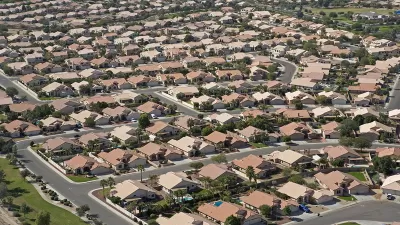With Donald Trump set to take office January 20th, some cities are already planning to defy his deportation plans.

During his campaign, Donald Trump initially promised to deport 11 million undocumented immigrants. Since winning the election a few weeks ago he has already backed down from that promise, but Natalie Delgadillo reports in CityLab that the president elect, "Appears intent on deporting some 3 million undocumented immigrants (still the most in history, but far less than his original vow to deport 11 million)." To accomplish that record deportation and eclipse the previous high set by Obama, Trump will need the cooperation of a number of different groups and bureaucracies. "On the campaign trail, Trump promised to cut off federal funding to localities that refuse to cooperate with federal immigration authorities in enforcing immigration law," Delgadillo tells us.
Even with that threat of reduced funding, many of the mayors and prominent official in America's largest cities have already publicly stated their intentions to defy Trump's deportation plans. These "sanctuary cities" include: New York, Los Angeles, Chicago, Philadelphia, San Francisco, Washington D.C., Seattle, and Providence, among others. San Francisco's mayor, Ed Lee, said in a tweet, "Being a sanctuary city is in our DNA. San Francisco will never be anything other than a sanctuary city."
The consequences of this conflict could be great. The Pew Research Center estimated there were approximately 11.1 million undocumented immigrants in the United States, down about a million since its peak in 2007. If more than one in four of those people were to be forcibly removed from the country, it would affect the landlords who rent to them, businesses that employ them and the families they support. The ripple effects would create huge impacts on the economic output, schools, and housing markets. If Trump is to find a way to follow through on his threat to cut off funding to cities, the consequences would be severe. "In San Francisco alone, city leaders estimate they receive about one billion dollars a year in federal funding for everything from infrastructure to education," Delgadillo reports.
FULL STORY: The Cities Pledging to Defy Trump on Immigration

Alabama: Trump Terminates Settlements for Black Communities Harmed By Raw Sewage
Trump deemed the landmark civil rights agreement “illegal DEI and environmental justice policy.”

Planetizen Federal Action Tracker
A weekly monitor of how Trump’s orders and actions are impacting planners and planning in America.

The 120 Year Old Tiny Home Villages That Sheltered San Francisco’s Earthquake Refugees
More than a century ago, San Francisco mobilized to house thousands of residents displaced by the 1906 earthquake. Could their strategy offer a model for the present?

In Both Crashes and Crime, Public Transportation is Far Safer than Driving
Contrary to popular assumptions, public transportation has far lower crash and crime rates than automobile travel. For safer communities, improve and encourage transit travel.

Report: Zoning Reforms Should Complement Nashville’s Ambitious Transit Plan
Without reform, restrictive zoning codes will limit the impact of the city’s planned transit expansion and could exclude some of the residents who depend on transit the most.

Judge Orders Release of Frozen IRA, IIJA Funding
The decision is a victory for environmental groups who charged that freezing funds for critical infrastructure and disaster response programs caused “real and irreparable harm” to communities.
Urban Design for Planners 1: Software Tools
This six-course series explores essential urban design concepts using open source software and equips planners with the tools they need to participate fully in the urban design process.
Planning for Universal Design
Learn the tools for implementing Universal Design in planning regulations.
Clanton & Associates, Inc.
Jessamine County Fiscal Court
Institute for Housing and Urban Development Studies (IHS)
City of Grandview
Harvard GSD Executive Education
Toledo-Lucas County Plan Commissions
Salt Lake City
NYU Wagner Graduate School of Public Service





























